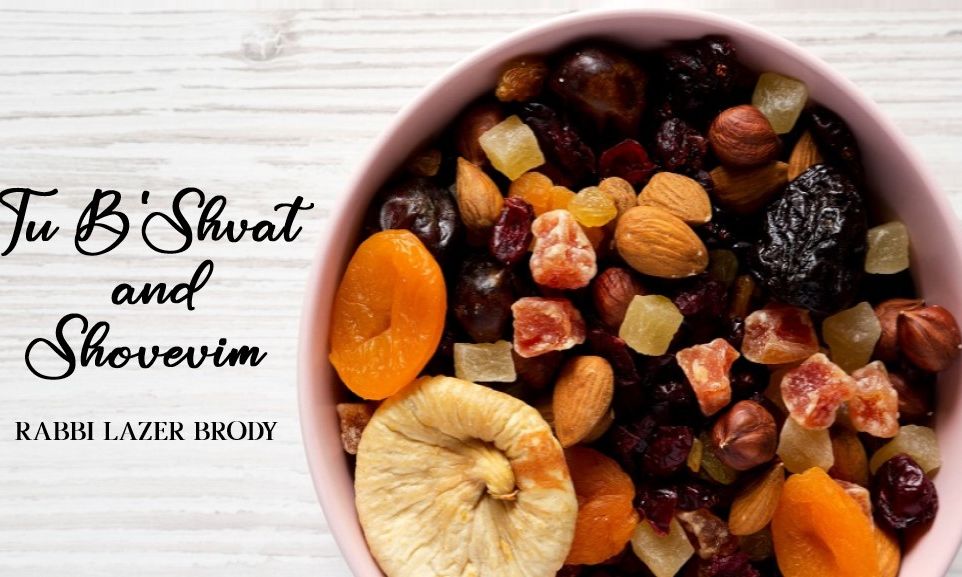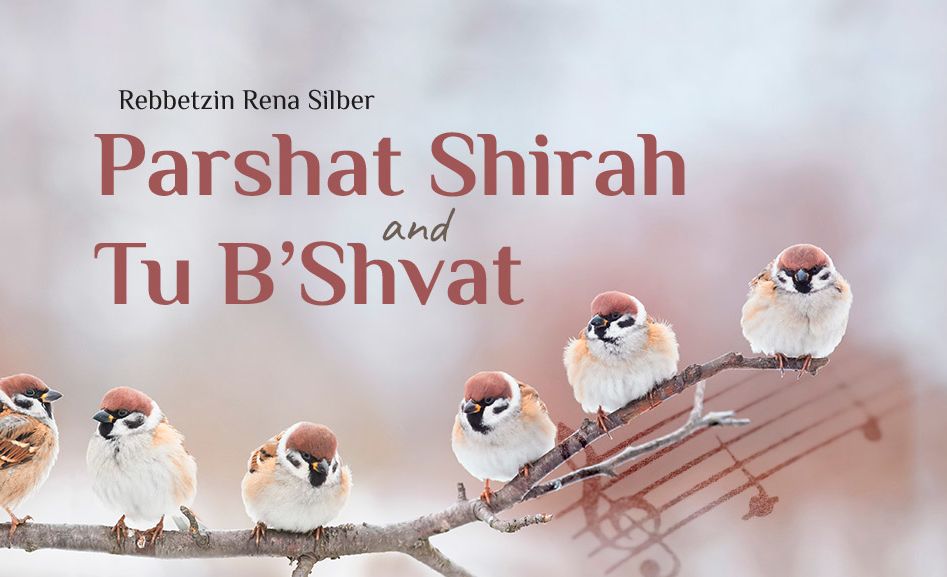
Tu B’Shvat and Shovevim
“The righteous man shall flower like a date palm and grow tall like a cedar of Lebanon.” Why does King David use a double imagery of date palm and cedar? The answer...

Having grown up in a non-religious home, I was educated in an environment as far away from Torah as one could imagine. But, one of the many things that I’m so grateful to Hashem for is the fact that I studied agriculture in university rather than subjects like philosophy. My particular area of specialization was horticulture and deciduous orchards. Consequently, I love trees, and am gratified to say that there are hundreds of trees in the Land of Israel that I’ve had the privilege of planting with my own two hands during my years as a farmer in the hills of the Shomron.
If trees intrigued me as a farmer, I find them even more mystifying from my present vantage point as a rabbi and student of Torah and Chassidic thought. The Torah says (Devarim 20:19), “For man is a tree in the field.” This is one of the greatest secrets of Torah. Within this tiny passage is the key to human success and happiness. But, before we elaborate further, we should note that if the Torah calls us all “trees of the field,” then Tu B’Shvat – the official New Year of trees – is also a New Year for us.
We should all rejoice in this wonderful holiday (that unfortunately many take for granted) by planting trees wherever we can. By tradition, we also partake of the wonderful fruits of the trees. Many people make festive meals on this day, with their tables bedecked with a myriad of different fruits, especially the fruits of Eretz Yisrael. You can adopt this beautiful custom for your family as well.
King David also used the metaphor of a man as a tree. In Psalm 92, he says, “The righteous man shall flower like a date palm and grow tall like a cedar of Lebanon.” Why does King David use a double imagery of date palm and cedar? The answer – from a horticulturalist’s perspective, is quite deep.
Even though date palms flourish in desert climates, they must grow near a source of water such as an oasis. Their roots are broad, but relatively shallow. On the other hand, cedars grow on top of mountains at a minimum altitude of 4,000 feet. They have a single tap root that’s capable of penetrating boulders until reaching a source of water. Whereas date palms give a tremendous amount of luscious fruit, cedars give none. But, whereas the wood of a cedar is one of the best and most expensive on earth, the wood of a date palm is worthless.
King David wants us to be both – like cedars and like date palms. He wants us personally to excel and to develop our characters to the hilt; in other words, our “wood” should be good, like a cedar. On the other hand, he wants us to bear fruit – good children – like a date palm. We should have deep roots like a cedar, with a deep connection to our ancient roots. But, like a date palm, we should be close to a source of water, our vitality, which is the Torah (in many places, our sages compare Torah to water).
With Psalm 92 in mind, we must ask ourselves why Tu B’Shvat always falls in the midst of the Shovevim weeks, when we place a special emphasis on kedusha and Tikkun HaBrit (personal holiness). Rebbe Natan provides us with a beautiful answer in Likutei Halachot, Hilchot Yibum, Halacha A.3: “Even if a person is a guardian of the holy covenant, as long as he doesn’t have children, he is called a dry tree. A person must be a fruit tree, for bearing children in holiness is the main aspect of Tikkun HaBrit, maintaining the holy covenant.” Bearing fruit in holiness is the epitome of Shmirat HaBrit. We therefore have an amazing intrinsic explanation why Tu B’Shvat and the Shovevim are so interrelated.
Many of the nations try to attain holiness by total abstention, such as the monks and the priests on top of mountains in monasteries and far-away cloisters. Judaism is dramatically different: we attain holiness by using all the tools that Hashem has given us in holiness. We don’t fast, we simply eat in holiness, washing our hands, praying before and after the meal, and eating only what’s good for us. We don’t abstain from the opposite sex either. Instead, we marry, we live loyal and loving lives devoted to our mates, we observe the laws of modesty and family purity, and we bring spiritually beautiful children into the world, the sweetest of fruits.
Therefore, when the Torah mentions “trees of the field,” it is referring to fruit-bearing trees. May we all merit to sink our roots deep into the tradition of our people and to see many wonderful sweet fruits walking in the path of Torah and Breslever chassidut, amen! Happy Tu B’Shvat!







Tell us what you think!
Thank you for your comment!
It will be published after approval by the Editor.